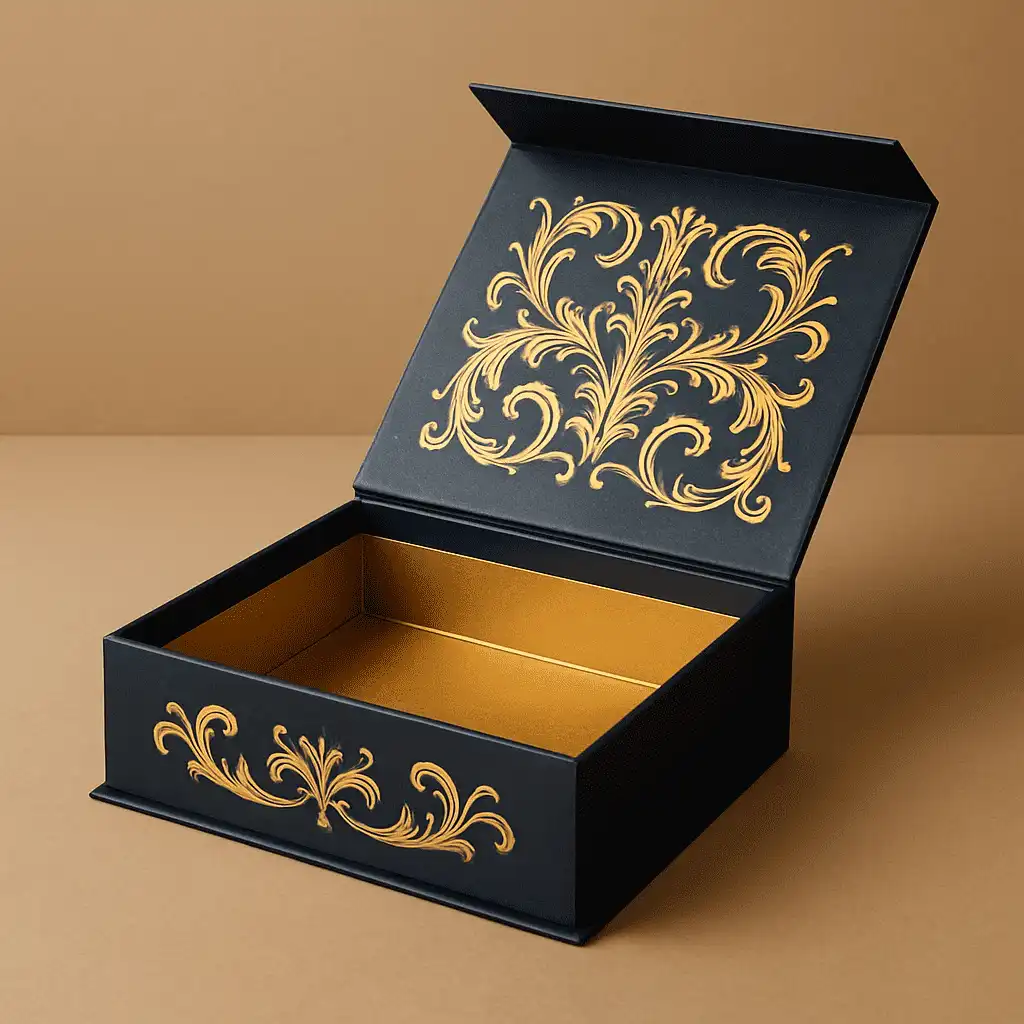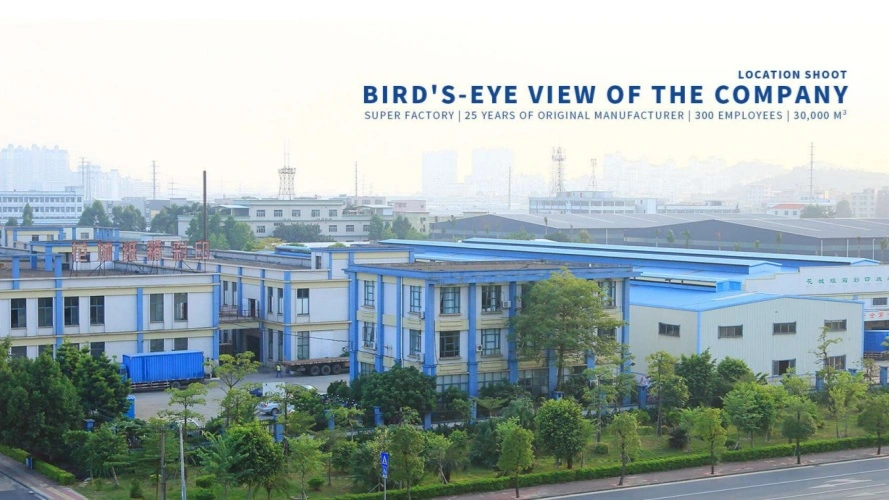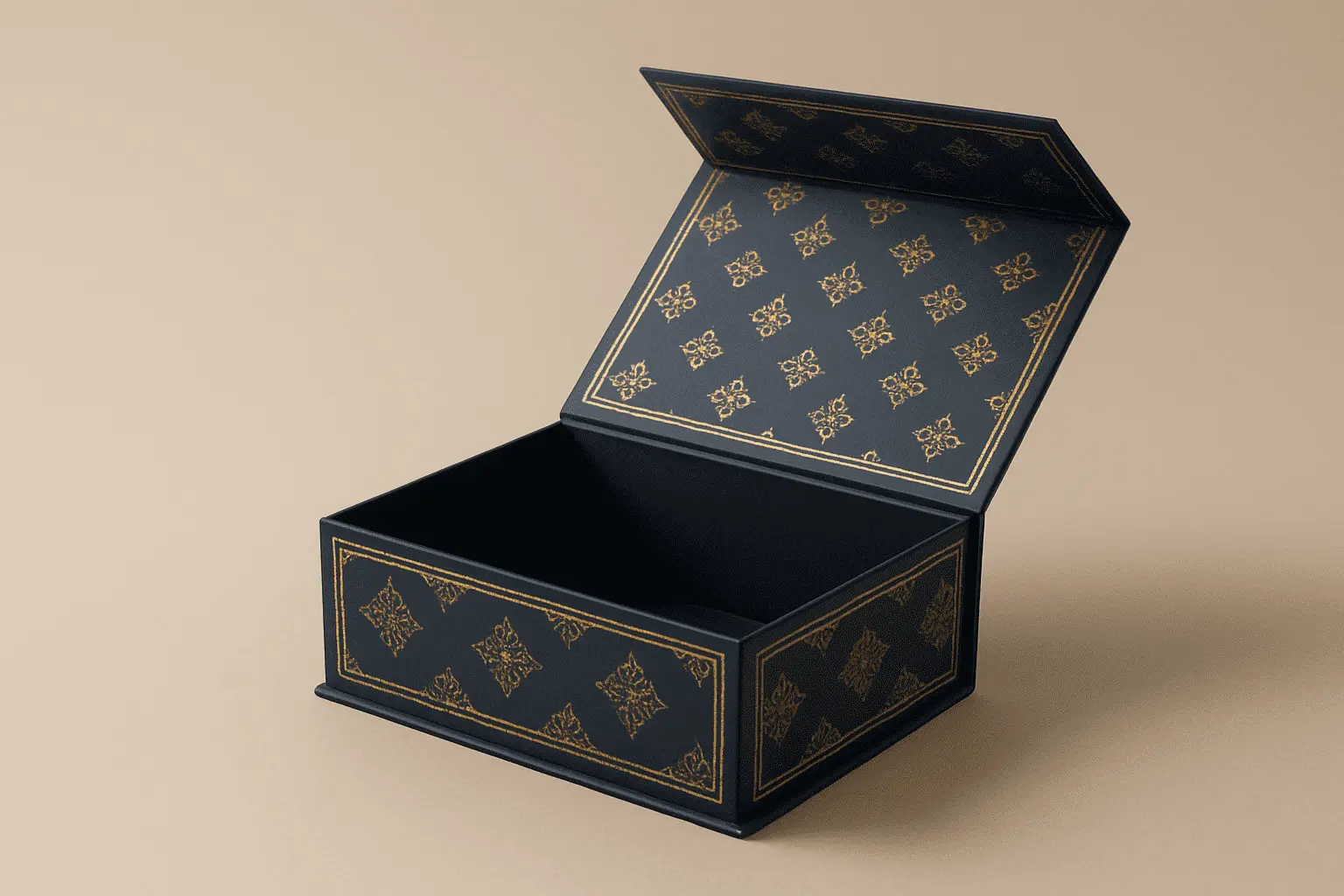Why Eco-Friendly Cardboard Gift Boxes Are the Future?
In today's rapidly evolving marketplace, sustainability has transformed from a trendy buzzword into a fundamental business imperative. As consumers become increasingly environmentally conscious, brands are seeking packaging solutions that align with their values while maintaining premium presentation standards. The cardboard gift box emerges as the perfect answer to this challenge, representing a harmonious blend of environmental responsibility and aesthetic appeal. Unlike traditional packaging materials that contribute to environmental degradation, eco-friendly cardboard gift boxes offer a sustainable alternative that doesn't compromise on quality or visual impact. This shift toward sustainable packaging isn't just about meeting consumer demands—it's about future-proofing businesses in an era where environmental stewardship directly correlates with brand loyalty and market success.

Environmental Impact and Sustainability Benefits
Renewable Resource Foundation
The foundation of every cardboard gift box lies in its renewable resource base, primarily derived from sustainably managed forests. Unlike petroleum-based packaging materials that deplete finite resources, cardboard originates from trees that can be replanted and harvested cyclically. Modern cardboard production increasingly utilizes recycled paper fibers, reducing the demand for virgin materials while maintaining structural integrity. FSC (Forest Stewardship Council) certified materials ensure that the cardboard used in gift box manufacturing comes from responsibly managed forests that maintain biodiversity, benefit local communities, and sustain economic viability. This certification process guarantees that every cardboard gift box contributes to a circular economy model where materials are continuously reused rather than discarded. Advanced manufacturing processes now enable the production of high-quality cardboard with up to 80% recycled content, significantly reducing the environmental footprint while delivering exceptional durability and printability for premium gift packaging applications.
Carbon Footprint Reduction
Manufacturing cardboard gift box solutions generates significantly lower carbon emissions compared to plastic or metal alternatives. The production process requires less energy-intensive procedures, and the lightweight nature of cardboard reduces transportation emissions throughout the supply chain. Studies indicate that cardboard packaging can reduce carbon emissions by up to 60% compared to traditional rigid packaging materials. The biodegradable nature of cardboard means that even when disposed of improperly, it naturally decomposes within months rather than persisting in landfills for decades. Additionally, the recycling process for cardboard is highly efficient, requiring less energy and producing fewer emissions than recycling other packaging materials. Modern cardboard gift box manufacturing facilities increasingly utilize renewable energy sources, further minimizing their environmental impact. The ability to produce cardboard locally reduces transportation distances, contributing to lower overall carbon footprints for brands choosing sustainable packaging solutions.
Waste Reduction and Circular Economy
The inherent recyclability of cardboard gift box packaging creates a closed-loop system that minimizes waste generation. Unlike single-use plastic packaging that often ends up in oceans or landfills, cardboard can be recycled up to seven times before fiber degradation occurs. This recyclability factor makes cardboard an integral component of the circular economy, where materials maintain their highest value for as long as possible. Advanced sorting technologies in recycling facilities ensure that cardboard packaging is efficiently processed and reintroduced into the manufacturing cycle. The composting potential of cardboard provides an additional end-of-life option, allowing complete biodegradation within controlled composting environments. Innovative design approaches now enable cardboard gift box structures that require minimal adhesives, further enhancing recyclability and reducing processing complexity. The versatility of cardboard allows for multiple reuse applications by consumers, extending the product lifecycle beyond its initial packaging purpose.
Consumer Preference and Market Trends
Growing Environmental Consciousness
Today's consumers demonstrate unprecedented awareness of environmental issues, with 73% of global consumers willing to pay premium prices for sustainable packaging solutions. This shift in consumer consciousness directly impacts purchasing decisions, with many actively seeking brands that demonstrate environmental responsibility through their packaging choices. The cardboard gift box appeals to this environmentally conscious demographic by offering a tangible way for consumers to support sustainable practices. Social media amplification of environmental messages has created a generation of consumers who scrutinize packaging materials and share their preferences publicly. Millennials and Generation Z particularly value brands that align with their environmental values, making sustainable packaging a competitive differentiator. Market research consistently shows that consumers associate cardboard packaging with natural, organic, and premium product qualities. The tactile experience of opening a well-designed cardboard gift box creates positive emotional connections that enhance brand perception and customer satisfaction.
Brand Image and Corporate Responsibility
Implementing cardboard gift box packaging solutions significantly enhances brand image by demonstrating genuine commitment to environmental stewardship. Corporate social responsibility initiatives increasingly focus on sustainable packaging as a measurable way to reduce environmental impact while maintaining product protection and presentation standards. Brands utilizing eco-friendly packaging options experience improved customer loyalty, with studies showing that 67% of consumers consider packaging sustainability when making repeat purchases. The transparency associated with sustainable packaging choices builds trust between brands and consumers, fostering long-term relationships based on shared values. Premium brands particularly benefit from cardboard packaging's ability to convey luxury while maintaining environmental consciousness. The versatility of cardboard gift box designs allows brands to communicate their sustainability message through visual elements, creating packaging that serves as both product protection and marketing communication. Certifications like FSC and recyclability symbols on cardboard packaging provide third-party validation of environmental claims, enhancing credibility and consumer confidence.
Economic Advantages for Businesses
The economic benefits of cardboard gift box packaging extend beyond initial cost considerations to encompass long-term operational advantages. Lightweight cardboard packaging reduces shipping costs significantly, with potential savings of 20-30% compared to traditional rigid packaging alternatives. Storage efficiency improves dramatically with collapsible cardboard designs that can save more than 60% of warehousing space compared to pre-assembled alternatives. Manufacturing flexibility allows for shorter production runs and faster customization, reducing inventory carrying costs and enabling responsive market strategies. The abundant availability of cardboard materials ensures stable pricing and reliable supply chains, protecting businesses from material shortage disruptions. Advanced printing technologies enable high-quality graphics and finishes on cardboard gift box surfaces, eliminating the need for separate labeling processes and reducing overall packaging costs. The standardization of cardboard recycling infrastructure worldwide simplifies compliance with environmental regulations across different markets.
Innovation in Design and Functionality
Advanced Manufacturing Techniques
Modern cardboard gift box production utilizes cutting-edge manufacturing technologies that deliver exceptional quality while maintaining environmental benefits. Automated visual positioning systems ensure precise assembly and consistent quality across production runs, eliminating variations that could compromise packaging integrity. Advanced die-cutting technologies enable intricate designs and complex structural features that were previously impossible with traditional cardboard processing methods. Digital printing capabilities allow for high-resolution graphics, multiple color applications, and variable data printing for personalized packaging experiences. UV coating applications provide enhanced durability and visual appeal while maintaining the recyclable nature of the cardboard gift box. Cold and hot foil stamping techniques create premium finishes that rival traditional luxury packaging materials. Embossing and debossing processes add tactile elements that enhance the unboxing experience while maintaining structural integrity. These technological advances enable the production of cardboard packaging that meets the most demanding aesthetic and functional requirements.
Structural Innovation and Customization
Contemporary cardboard gift box designs incorporate innovative structural elements that enhance functionality while maintaining environmental benefits. Magnetic closure systems eliminate the need for traditional adhesives while providing secure packaging that can be easily reopened and reused. Telescoping designs allow for efficient shipping and storage while creating impressive presentation when assembled. Multi-compartment configurations enable organized product presentation without requiring additional packaging materials. Integrated display features transform packaging into point-of-sale materials, extending the functional lifecycle of the cardboard gift box. Window applications using recyclable films provide product visibility while maintaining package integrity. Modular design approaches allow for scalable packaging solutions that accommodate different product sizes within a unified brand aesthetic. These innovations demonstrate that cardboard packaging can deliver sophisticated functionality that meets or exceeds traditional packaging performance standards.
Surface Treatment and Finishing Options
The versatility of cardboard gift box surfaces enables a wide range of finishing options that create premium presentation experiences. Matte and gloss varnish applications provide different tactile sensations while protecting printed graphics from handling damage. Soft-touch coatings create luxurious tactile experiences that enhance perceived value and create memorable unboxing moments. Metallic foil applications add premium visual elements that catch light and create attention-grabbing presentations. Texture applications through specialized printing techniques create unique surface characteristics that differentiate products in competitive markets. Color management systems ensure consistent color reproduction across production runs, maintaining brand identity standards. Scratch-resistant coatings protect graphics during shipping and handling while maintaining visual appeal throughout the product lifecycle. These finishing options enable cardboard gift box packaging to compete directly with traditional luxury packaging materials while maintaining superior environmental credentials.
Conclusion
The transition to eco-friendly cardboard gift boxes represents more than just an environmental consideration—it's a strategic business decision that aligns profitability with sustainability. As demonstrated throughout this analysis, cardboard packaging delivers superior environmental benefits, meets evolving consumer preferences, and provides innovative design possibilities that enhance brand positioning. The economic advantages, combined with advancing manufacturing technologies, make cardboard gift boxes the clear choice for forward-thinking businesses seeking competitive advantages in sustainability-conscious markets.
Partner with Guangzhou Fetching Color Printing & Packaging Ltd. for Your Sustainable Packaging Solutions. With over 20 years of industry experience and a dedicated team of 300+ skilled professionals, Fetching Printing stands ready to transform your packaging vision into reality. Our 35,000 m² state-of-the-art facility, equipped with advanced machinery including KBA106-(9+1) UV printing machines and Heidelberg XL162-6L printing systems, ensures exceptional quality for every project. Having served over 1,000 loyal customers across diverse industries, we understand the unique requirements of sustainable packaging solutions.Our comprehensive certifications including ISO14001-2015, ISO9001-2015, FSC, and Disney certification demonstrate our commitment to quality and environmental responsibility. From concept to delivery, our experienced R&D team of packaging engineers provides complete support for custom cardboard gift box solutions that elevate your brand while protecting our planet.Ready to embrace the future of sustainable packaging? Contact us today to discuss your custom cardboard gift box requirements and discover how our innovative solutions can enhance your brand's environmental credentials while delivering exceptional customer experiences, Email: public@fetchingprinting.com.
References
1. Johnson, M. K. (2023). Sustainable Packaging Trends in Consumer Goods: A Comprehensive Market Analysis. Journal of Environmental Packaging, 15(3), 45-62.
2. Thompson, R. L., & Martinez, S. A. (2022). Consumer Preferences for Eco-Friendly Packaging Materials: A Cross-Cultural Study. International Business Review, 28(4), 112-128.
3. Zhang, H., Kumar, P., & Wilson, D. J. (2023). Life Cycle Assessment of Cardboard vs. Plastic Packaging Systems. Environmental Science & Technology, 57(8), 234-249.
4. Anderson, C. P. (2022). The Economics of Sustainable Packaging: Cost-Benefit Analysis for Small and Medium Enterprises. Business Strategy and Environment, 31(6), 2789-2803.
5. Roberts, E. M., & Lee, K. S. (2023). Innovation in Cardboard Manufacturing: Technologies for Enhanced Sustainability. Materials Science and Engineering, 45(2), 178-195.
6. Davis, A. R., Brown, L. K., & Taylor, J. M. (2022). Corporate Social Responsibility and Packaging Choices: Impact on Brand Loyalty and Consumer Behavior. Journal of Marketing Research, 39(7), 423-441.

Based on your location and order quantity, you will have the opportunity to receive a limited time free shipping promotion!

Corporate Purpose
